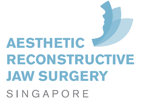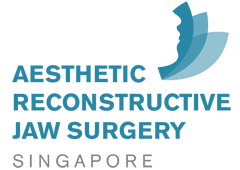Share this
Jaw Surgery Singapore: What Are the Risks?
on June 13, 2014
 Jaw surgery, also known as orthognathic surgery, is done to correct poor jaw alignment, resizing or reshaping the jawbones. Improper jaw alignment can cause conditions that include overbite, underbite and cross bite. Depending upon their severity, these conditions can cause functional problems, including poor biting and chewing efficiency, excessive wear and/or decay in teeth or the inability for the mouth to close naturally. Aesthetic issues are also common with misaligned jaws, such as a receding chin, protruding chin or an elongated lower jaw, spoiling facial harmony. With jaw surgery, Singapore oral and maxillofacial surgeons can correct these issues – but what are the risks of jaw surgery?
Jaw surgery, also known as orthognathic surgery, is done to correct poor jaw alignment, resizing or reshaping the jawbones. Improper jaw alignment can cause conditions that include overbite, underbite and cross bite. Depending upon their severity, these conditions can cause functional problems, including poor biting and chewing efficiency, excessive wear and/or decay in teeth or the inability for the mouth to close naturally. Aesthetic issues are also common with misaligned jaws, such as a receding chin, protruding chin or an elongated lower jaw, spoiling facial harmony. With jaw surgery, Singapore oral and maxillofacial surgeons can correct these issues – but what are the risks of jaw surgery?
Jaw Surgery Singapore: The Basics
Corrective jaw surgery is typically done in conjunction with orthodontic treatment – performed in most cases both before and after the actual surgical treatment. During jaw surgery, Singapore oral surgeons will surgically reposition one or both of a patient's jaws to correct jaw alignment. This involves making incisions – which is done inside the mouth in most cases to minimize facial scarring – to provide the surgeon access to the jawbone. Then, bones will be cut in order to resize or reshape them as necessary. Once the jawbones have been properly shaped and positioned, they will be secured in their new position, most frequently with titanium plates and screws. This surgery is typically performed under general anesthesia and generally requires a short hospital stay.
Risks Of Jaw Surgery
Jaw surgery is considered a safe and effective treatment for the functional and aesthetic problems that can occur with improperly aligned jaws, and serious complications are uncommon. However, as with any surgery, there is some risk of both short and long-term complications.
Potential short-term risks of jaw surgery include:
- Excessive bleeding.
- Infection.
- Anesthesia reactions.
- Nausea and vomiting.
- Tooth damage.
- Temporary numbness or tingling in the face, generally occurring in areas that can include the chin, nose, lips, cheeks or tongue.
Possible long-term risks of jaw surgery – or complications that may persist for 12 months or more – include:
- TMJ disorders.
- Nerve damage that can result in permanent loss of sensation at or near the chin, nose, lips or tongue.
- Poor aesthetic outcomes.
- Recurrence of the original jaw disorder.
While it is important to be aware of the possible risks of jaw surgery, Singapore patients should keep in mind that serious complications are rare. For the vast majority of patients affected by jaw disorders, the benefits of the procedure in resolving functional and aesthetic issues far outweigh the risks.
Share this
- Jaw Surgery (93)
- Dental Implants Singapore (90)
- Orthognathic Surgery (48)
- Replacing Missing Teeth (26)
- Missing Teeth Options (23)
- Underbite (23)
- Bone Grafting (21)
- Costs (18)
- Facial Aesthetics (18)
- Aesthetics (17)
- dental implants (16)
- corrective jaw surgery (15)
- BOTOX (11)
- Dermal Fillers (11)
- Wisdom teeth (10)
- Fixed Implant Dentures (8)
- Loose Dentures Singapore (6)
- Medisave (6)
- sleep apnea (6)
- Braces (5)
- Dental Pain (5)
- Dentures in Singapore (5)
- Loose Teeth (5)
- Tooth Extraction (5)
- jaw deformities (5)
- bimax (4)
- bone graft (4)
- maxillomandibular advancement (4)
- all-on-4 (3)
- bimaxillary protrusion (3)
- chin implant (3)
- facial asymmetry (3)
- full mouth dental implants (3)
- genioplasty (3)
- immediate implant (3)
- removal of an integrated dental implant (3)
- third molars (3)
- wisdom tooth surgery (3)
- My Dentures Don't Fit (2)
- VME (2)
- bone graft healing (2)
- distraction osteogenesis (2)
- medical tourism (2)
- obstructive sleep apnea (2)
- orthodontics (2)
- plastic surgery (2)
- CT guided dental implants (1)
- Double jaw surgery (1)
- Invisalign (1)
- Periodontal Disease (1)
- Permanent Dentures Singapore (1)
- before and after photos (1)
- facial trauma (1)
- fractured dental implant (1)
- oral appliance therapy (1)
- root canal treatment (1)
- veneers (1)
- vertical maxillary excess (1)
- September 2019 (2)
- July 2019 (2)
- May 2019 (2)
- August 2018 (1)
- October 2017 (1)
- September 2017 (2)
- August 2017 (1)
- June 2017 (2)
- May 2017 (4)
- April 2017 (1)
- March 2017 (1)
- February 2017 (3)
- January 2017 (3)
- December 2016 (1)
- November 2016 (2)
- October 2016 (4)
- September 2016 (9)
- August 2016 (5)
- July 2016 (11)
- June 2016 (14)
- May 2016 (6)
- April 2016 (2)
- March 2016 (1)
- January 2016 (7)
- December 2015 (10)
- November 2015 (4)
- October 2015 (9)
- September 2015 (7)
- August 2015 (1)
- July 2015 (6)
- June 2015 (3)
- May 2015 (7)
- April 2015 (5)
- March 2015 (8)
- January 2015 (5)
- December 2014 (7)
- November 2014 (7)
- October 2014 (6)
- September 2014 (8)
- August 2014 (5)
- July 2014 (7)
- June 2014 (8)
- May 2014 (9)
- April 2014 (10)
- March 2014 (6)
- February 2014 (8)
- January 2014 (3)
Subscribe by email
Email subscription




No Comments Yet
Let us know what you think